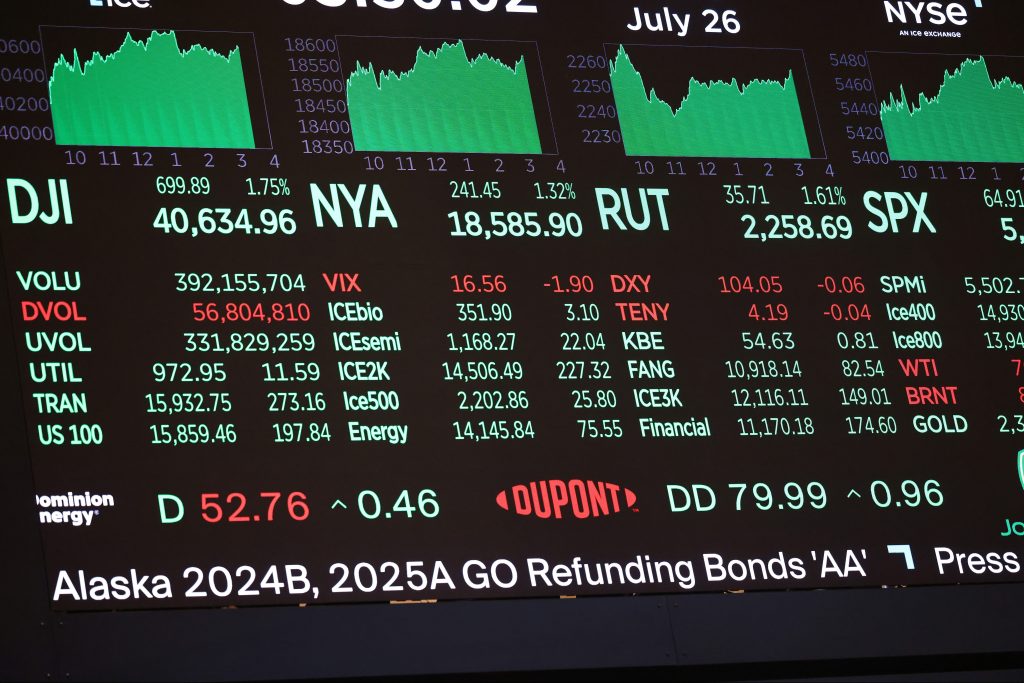US authorities have charged well-known activist short seller Andrew Left and his fund Citron Capital, alleging he had for years manipulated the market and defrauded investors with misleading claims about his positions in multiple stocks
The Department of Justice (DOJ) and SEC said in their respective orders that Left used his social media platform and cable news appearances to announce what he said were his long or short trades, only to quickly reverse his positions, making as much as $20m in the process.
The short activist
Like other short sellers, Left made bets that certain stocks would decline in value based on his analysis that a business may have underlying financial problems or because he believed the shares were overvalued.
But Left was a particularly well-known and influential investor. He was a research report writer, plus a frequent guest commentator on television channels including CNBC and Fox Business. He built a following through those cable shows, and on various podcasts and social media channels. Using such platforms, he made contrary calls on stocks such as GameStop — a darling of meme-stock followers — plus Shopify, and the now-defunct Chinese property developer Evergrande.
Known for his sensational and colorful style, Left spent over a decade known as a cohort of such “short activists” betting against public companies, claiming he and other short activists play a crucial role in the market. Critics have accused them of “short and distort” tactics that have unfairly damaged public companies.
In their complaint, the SEC alleges that Left and Citron Capital made several false and misleading statements in connection with the scheme.
The alleged bait-and-switch scheme netted Left and his firm $20m in profits, said Kate Zoladz, director of the SEC’s Los Angeles regional office, in a statement.
“Andrew Left took advantage of his readers. He built their trust and induced them to trade on false pretenses so that he could quickly reverse direction and profit from the price moves following his reports,” Zoladz added.
SEC and DOJ say he went too far
The SEC’s complaint alleges that Left, who resides in Boca Raton, Florida., used his Citron Research website and related social media platforms on at least 26 occasions to publicly recommend taking long or short positions in 23 companies. He held out the positions as consistent with his own and Citron Capital’s. The complaint alleges that following Left’s recommendations, the price of the target stocks moved more than 12% on average.
According to the SEC’s complaint, once the recommendations were issued and the stocks moved, Left and Citron Capital quickly reversed their positions to capitalize on the stock price movements.
As a consequence, Left bought back stock immediately after telling his readers to sell, and he sold stock immediately after telling his readers to buy.
In its complaint, the SEC also alleges that Left and Citron Capital made several false and misleading statements in connection with the scheme.
DOJ also said that Left allegedly concealed Citron’s financial relationships with a hedge fund by fabricating invoices, wiring payments through a third party, and making false and misleading statements to the public about Citron’s relationship with hedge funds. In addition, Left allegedly lied to law enforcement, stating that Citron “never” exchanged compensation with a hedge fund or coordinated trading with a hedge fund in advance of the issuance of its commentary.
For example, DOJ said in its press release that after denouncing one company as a “fraud” on CNBC’s Fast Money, Left allegedly falsely claimed to have covered only a “small size” of his position in the company’s stock when, earlier that same day, he allegedly closed out more than 60% of his position.
Charges
Left was criminally charged with one count of engaging in a securities fraud scheme, 17 counts of securities fraud, and one count of making false statements to federal investigators.
The SEC charged him for making materially false and misleading statements under SEC Rules 10b and 17a, and the agency is seeking “disgorgement, prejudgment interest, and civil monetary penalties against Left and Citron, plus conduct-based injunctions, an officer-and-director bar, and a penny stock bar.”
37% of Gen-Z investors in the US, 30% in Canada, and 38% in the UK cite social media influencers as a major factor in their decision to start investing.
The DOJ noted that, if convicted, Left faces a maximum penalty of 25 years in prison on the securities fraud scheme count, 20 years in prison on each securities fraud count, and five years in prison on the false statements count.
Previous incident
Left had a prior brush with the law in 2016, when Hong Kong’s Misconduct Tribunal said he was reckless and negligent when his firm released its report on Evergrande in June 2012.
Just last year, the SEC instituted new rules concerning the reporting of short-selling activities. The new mandates arrived in a climate of heightened scrutiny around short selling, especially following the meme stock craze in which retail investors significantly drove up the price of GameStop stock, inflicting severe losses on hedge funds that had shorted the company.
The SEC has also shown considerable wariness of the role financial influencers or “finfluencers” play in touting investment strategies, with the agency being at the forefront of action against those promoting cryptoassets in particular.
This is likely because of the statistics the regulators are reading: 37% of Gen-Z investors in the US, 30% in Canada, and 38% in the UK cite social media influencers as a major factor in their decision to start investing.
















